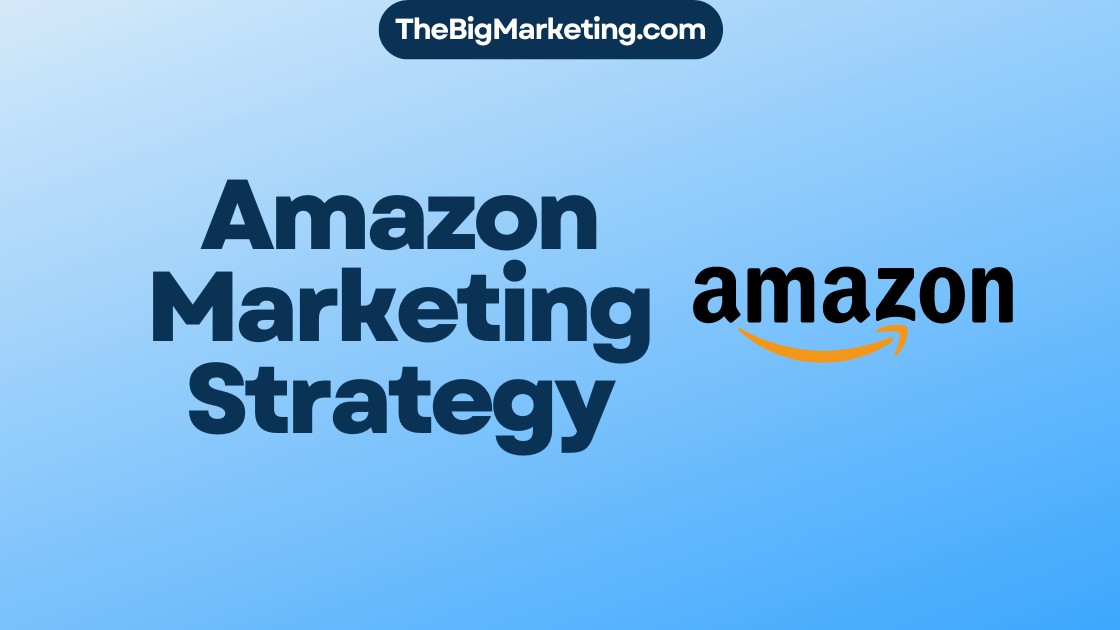A marketing platform is a powerful tool or software solution that allows marketers to effectively manage and orchestrate their marketing activities across various channels. It serves as a central hub for all marketing efforts, providing functionalities and features that optimize performance, enhance engagement, build awareness, reach target audiences, and convert leads into sales.
With a marketing platform, you can efficiently streamline your marketing tasks, automate processes, and gain valuable insights into your campaign’s performance. From workflow visibility and team communication to sales tracking and reporting, a marketing platform offers a comprehensive suite of tools to enhance your digital marketing strategies.
Whether you are looking for a digital marketing platform, an online marketing tool, or marketing automation software, there is a wide array of marketing technology solutions available in the market. These platforms cater to different marketing needs and objectives, allowing you to tailor your strategies and achieve the best possible results for your business.
Key Takeaways:
- A marketing platform is a robust tool that helps marketers manage and organize their marketing activities.
- It offers features such as workflow visibility, team communication, sales tracking, reporting, task automation, email and social media management, and lead management.
- Using a marketing platform can improve tracking, increase efficiency, and fill gaps in planning.
- When choosing a marketing platform, define your goals, identify your target audience, determine your budget, and research your competitors.
- There are various types of marketing platforms available, including traditional, digital, content, email, social media, CRM, MRM, and DAM platforms.
Definition Of Marketing Platforms
Marketing platforms are powerful tools or software solutions that enable marketers to effectively manage and orchestrate their marketing activities across various channels. These platforms play a crucial role in strengthening the relationship between a brand and its customers or prospects, driving engagement, building awareness, reaching the target audience, and converting leads into sales.
With the ever-evolving digital landscape, marketing platforms have become essential for organizations of all sizes to streamline their marketing efforts and achieve optimal results. These platforms offer a wide range of features, functionalities, and integrations that empower marketers to execute strategic campaigns, track performance, and make data-driven decisions.
By leveraging marketing platforms, marketers can strategically plan, execute, and measure the impact of their marketing initiatives, ensuring they align with the overall business goals and objectives. These platforms provide a centralized hub for managing various marketing tasks, including campaign management, content creation, audience segmentation, automation, analytics, and reporting.
The key benefits of utilizing marketing platforms include:
- Efficient management and coordination of marketing activities
- Enhanced visibility and control over marketing campaigns
- Seamless integration and automation of marketing tasks
- Improved targeting and personalization of marketing messages
- Insights-driven decision-making through advanced analytics
- Optimized resource allocation and ROI tracking
Visualizing Marketing Platforms
To provide a visual representation of marketing platforms, here is an example table showcasing some popular marketing platform solutions:
| Platform | Description |
|---|---|
| A comprehensive digital marketing platform that offers a wide range of features for executing and managing digital marketing campaigns, including email marketing, social media marketing, SEO, content marketing, and more. | |
| An advanced marketing automation software that automates repetitive marketing tasks, such as lead nurturing, email campaigns, social media scheduling, and customer segmentation, to streamline marketing processes and maximize efficiency. | |
| An advertising platform that enables marketers to manage and optimize their online advertising campaigns across various channels, including display ads, search ads, social media ads, and video ads. | |
| A comprehensive suite of marketing technology solutions that integrates various marketing tools and applications into a single platform, providing marketers with a unified view and control over their marketing activities. |
These examples represent just a small fraction of the vast array of marketing platform solutions available in the market. Each platform offers unique features, functionalities, and pricing models to cater to the diverse needs and budgets of different businesses.
Ultimately, marketing platforms empower marketers to streamline their efforts, optimize their campaigns, and deliver impactful results. By leveraging the right marketing platform that aligns with their specific needs and objectives, marketers can enhance their overall marketing strategy and drive long-term success.
Features Of Marketing Platforms
Marketing platforms offer a wide range of features that aim to enhance productivity and streamline the marketer’s role. These features provide valuable tools to effectively manage marketing activities and drive results. Some of the key features of marketing platforms include:
- Visibility into the entire workflow: Marketing platforms provide a centralized dashboard that allows marketers to have a comprehensive view of their entire workflow. This enables better coordination and collaboration across teams, ensuring seamless execution of marketing campaigns.
- Team communication: Effective communication is essential for successful marketing campaigns. Marketing platforms facilitate smooth communication and collaboration among team members, helping to align strategies, share feedback and updates, and ensure everyone is on the same page.
- Sales tracking: Tracking sales metrics and analyzing performance is crucial for optimizing marketing efforts. Marketing platforms offer advanced tracking capabilities, allowing marketers to monitor sales data, measure conversions, and identify areas for improvement.
- Reporting: Marketing platforms provide robust reporting functionalities, enabling marketers to generate detailed reports on various marketing metrics. These reports help analyze campaign performance, identify trends, and make data-driven decisions.
- Marketing task automation: Automation is a key feature of marketing platforms, simplifying repetitive tasks and saving time. Marketers can automate email campaigns, social media postings, and other marketing tasks, freeing up valuable time to focus on strategic initiatives.
- Email marketing management: Email marketing remains a crucial component of any marketing strategy. Marketing platforms offer comprehensive email marketing management features, including list segmentation, personalized messaging, A/B testing, and performance tracking.
- Social media marketing management: Social media plays a significant role in modern marketing. Marketing platforms provide tools to manage and schedule social media posts, track engagement, and analyze social media campaign performance.
- Resource management: Efficient allocation of resources is essential for effective marketing execution. Marketing platforms help manage and optimize resources, including budget allocation, asset management, and campaign scheduling.
- Lead management: Converting leads into customers is a primary objective of marketing. Marketing platforms offer lead management features, including lead tracking, lead nurturing, and automated lead scoring, helping to streamline the lead generation and conversion process.
By utilizing the diverse range of features offered by marketing platforms, marketers can maximize productivity, improve campaign performance, and achieve their marketing goals more efficiently.
Benefits Of Using Marketing Management Platforms
Using marketing management platforms can provide various benefits. These platforms offer valuable features and functionalities that enhance marketing strategies and drive business success. Let’s explore some of the key benefits:
1. Track Performance
With a marketing management platform, marketers can easily track their own performance and that of their team. The platform provides valuable insights and analytics, allowing marketers to monitor key performance indicators (KPIs) such as website traffic, conversion rates, and lead generation. By having a clear view of performance metrics, marketers can identify areas for improvement and optimize their strategies accordingly.
2. Increase Efficiency
Marketing management platforms streamline and automate marketing tasks, eliminating manual processes and saving time. Marketers can leverage features such as workflow automation, email marketing management, and social media scheduling to increase the efficiency of their operations. By automating repetitive tasks, marketers can focus on more strategic initiatives and allocate their time and resources more effectively.
3. Find and Fill Gaps in Planning
A marketing management platform provides a centralized view of all marketing activities and data, allowing marketers to identify gaps in their planning. It enables them to determine which campaigns or channels are performing well and which ones need improvement. By analyzing data and identifying gaps, marketers can make informed decisions and optimize their marketing strategies to maximize results.
4. Enhance Customer Experiences
A marketing management platform allows marketers to create personalized and targeted marketing campaigns, resulting in enhanced customer experiences. By leveraging customer data and insights, marketers can deliver relevant and timely messaging to their target audience. This level of personalization helps to build strong relationships with customers, improve brand loyalty, and increase customer satisfaction.
When it comes to personalization, an all-in-one platform consultant helps marketers utilize a marketing management platform to streamline their efforts, drive better results, and stay ahead of the competition. By harnessing the power of these platforms, businesses can effectively manage their marketing activities, optimize performance, and achieve their marketing goals.
| Benefits | Description |
|---|---|
| Track Performance | Easily measure and monitor marketing campaign performance, track key metrics, and identify areas for improvement. |
| Increase Efficiency | Automate repetitive marketing tasks, streamline workflows, and optimize resource allocation for increased productivity. |
| Find and Fill Gaps in Planning | Gain a centralized view of marketing activities and data, helping to identify gaps in planning and optimize strategies. |
| Enhance Customer Experiences | Create personalized and targeted marketing campaigns based on customer insights, resulting in improved customer experiences. |
How To Choose The Right Marketing Platform
Choosing the right marketing platform is a critical decision that can significantly impact your marketing efforts and overall success. To ensure you make an informed decision, follow these key steps:
- Define Your Goals and Objectives: Clearly establish what you want to achieve with your marketing platform. Are you looking to increase brand awareness, drive customer engagement, or improve lead generation?
- Identify Your Target Audience: Understand your audience’s demographics, preferences, and habits. This knowledge will help you select a marketing platform that effectively reaches and engages your target market.
- Know Your Budget: Determine how much you are willing to invest in a marketing platform. Consider both the initial cost and any ongoing fees for maintenance or additional features.
- Determine Necessary Features: Identify the specific functionalities and tools that are essential for your marketing strategy. Do you need email marketing automation, social media scheduling, CRM integration, or advanced analytics?
- Research Your Competitors: Investigate what marketing platforms your competitors are using and evaluate their success. This research can provide insights into industry trends and help you identify platforms that align with your business objectives.
By following these steps and taking the time to carefully evaluate your options, you can choose the best marketing platform that suits your specific needs and maximizes your marketing efforts.
9 Types Of Marketing Platforms
When it comes to marketing, there is no shortage of platforms to choose from. Each type of platform offers unique features and functionalities to enhance your marketing efforts. Whether you’re looking for traditional marketing platforms or cutting-edge digital solutions, there is an option suited to your needs.
1. Traditional Marketing Platforms
Traditional marketing platforms encompass tried-and-true methods such as print media, television, radio, and direct mail. These platforms allow you to reach a broad audience and make a lasting impact.
2. Digital Marketing Platforms
Digital marketing platforms leverage the power of the internet and technology to promote your brand. They include website development tools, search engine optimization software, and online advertising platforms.
3. Content Marketing Platforms
Content marketing platforms enable you to create, distribute, and manage your content effectively. They provide tools for content creation, publication, and analytics, helping you engage your target audience.
4. Email Marketing Platforms
Email marketing platforms assist you in creating and managing email campaigns. They often offer features like automated workflows, personalization, and analytics to help you optimize your email marketing efforts.
5. Social Media Marketing Platforms
Social media marketing platforms allow you to manage and analyze your social media presence. They provide scheduling, monitoring, and analytics tools for platforms like Facebook, Instagram, Twitter, and LinkedIn.
6. Customer Relationship Management (CRM) Platforms
CRM platforms help you manage and nurture your customer relationships. They provide tools for tracking customer interactions, managing leads, and analyzing customer data to enhance your marketing strategies.
7. Marketing Resource Management (MRM) Platforms
MRM platforms streamline your marketing operations by centralizing your marketing assets, budgets, and workflows. They enable collaboration, resource allocation, and performance tracking across your marketing team.
8. Digital Asset Management (DAM) Platforms
DAM platforms allow you to store, organize, and distribute your digital assets such as images, videos, and documents. They provide efficient search capabilities and version control to ensure brand consistency.
9. Marketing Automation Platforms
Marketing automation platforms automate repetitive marketing tasks, allowing you to nurture leads, deliver personalized content, and measure campaign performance. They help streamline your marketing efforts and increase efficiency.
These nine types of marketing platforms offer a wide range of possibilities to enhance your marketing strategies. Consider your specific needs and goals when selecting the right platform for your business. With the right tools at your disposal, you can effectively reach your target audience, drive engagement, and achieve marketing success.
What is a marketing data platform?
A marketing data platform is a technology stack or platform that efficiently manages and organizes a company’s customer and marketing data from various channels and media. It provides marketers with a centralized and unified dashboard that allows for advanced analytics, streamlined marketing efforts, audience creation, and key performance indicator (KPI) measurement. By collecting data from different sources and unifying it, marketing data platforms offer a comprehensive and single view of all marketing activities.
With the ability to analyze and segment data, marketing data platforms enable marketers to derive actionable insights that can drive effective marketing strategies, optimize campaigns, and enhance customer experiences. By leveraging the power of data, marketers can make informed decisions and tailor their marketing efforts to meet the needs and preferences of their target audience.
For a visual representation, refer to the table below:
| Key Features | Description |
|---|---|
| Data Collection | Collects data from various sources such as websites, social media platforms, email campaigns, and CRM systems. |
| Data Unification | Combines and organizes data to create a unified view of marketing activities. |
| Advanced Analytics | Provides powerful analytics tools to analyze and derive insights from the collected data. |
| Audience Creation | Allows for the creation of targeted audience segments based on specific criteria and behaviors. |
| KPI Measurement | Tracks and measures key performance indicators to assess the success of marketing campaigns and strategies. |
To illustrate the concept visually, here’s an image related to marketing data platforms:
By utilizing a marketing data platform, marketers can harness the power of data-driven marketing, optimize their marketing efforts, and achieve better results in today’s competitive landscape.
How Platforms Work
Platforms work by creating ecosystems that enable the exchange of information, content, or products between different groups. These groups can include buyers and sellers, service providers and consumers, and creators and users. The primary function of platforms is to facilitate transactions and interactions, attracting users and providers and enabling matches between them.
Platforms provide the necessary technology to aid transactions while maintaining rules and standards. They serve as a central hub where users can access a wide range of services, products, or information. By bringing together multiple stakeholders, platforms create an environment that promotes collaboration and growth.
Whether it’s an e-commerce platform connecting buyers with sellers, a content-sharing platform connecting creators with users, or a service platform connecting service providers with consumers, the core concept remains the same – platforms provide a space where different parties can engage and transact.
By leveraging the scale and reach of platforms, businesses can tap into new markets, connect with a larger audience, and expand their customer base. Platforms also offer benefits such as increased visibility, enhanced credibility, and improved efficiency.
Key Functions of Platforms:
- Facilitating transactions and interactions
- Attracting and connecting users and providers
- Providing technology and tools for seamless transactions
- Maintaining rules and standards
- Promoting collaboration and growth
Platforms have revolutionized various industries by enabling the sharing economy, providing access to on-demand services, and fostering innovation. The rise of platforms has transformed how businesses operate, how consumers access goods and services, and how information is exchanged.
As technology continues to advance, platforms will continue to play a significant role in shaping the digital landscape. Whether it’s in the realm of e-commerce, social media, or cloud computing, platforms have become integral to our interconnected world.
| Advantages of Platforms | Disadvantages of Platforms |
|---|---|
| Access to a wider customer base | Dependency on platform policies and terms |
| Increased visibility and brand exposure | Competition within the platform |
| Efficient transactions and streamlined processes | Loss of direct customer relationships |
| Opportunity for collaboration and partnerships | Potential for changing platform dynamics |
Conclusion
Marketing platforms and marketing data platforms play a crucial role in optimizing marketing efforts, enhancing productivity, and driving results. These platforms offer a multitude of features and benefits that can significantly impact a company’s marketing strategies and overall success in today’s competitive market.
By choosing the right marketing platform, marketers can effectively manage their marketing activities, track performance, and make data-driven decisions. From workflow visibility to email marketing management and lead management, these platforms provide a comprehensive suite of tools to streamline and automate marketing processes.
Leveraging the power of marketing data platforms further enhances marketers’ capabilities. These platforms allow for the collection, unification, and analysis of customer and marketing data, enabling actionable insights and personalized marketing efforts. With the ability to create unified dashboards and measure key performance indicators, marketers can optimize their strategies and target their audience more effectively.
In today’s constantly evolving marketing landscape, companies need to stay ahead of the game. Investing in the right marketing platform and leveraging the power of marketing data platforms can give businesses a competitive edge, allowing them to drive impactful marketing campaigns, better understand their customers, and achieve their marketing goals.


